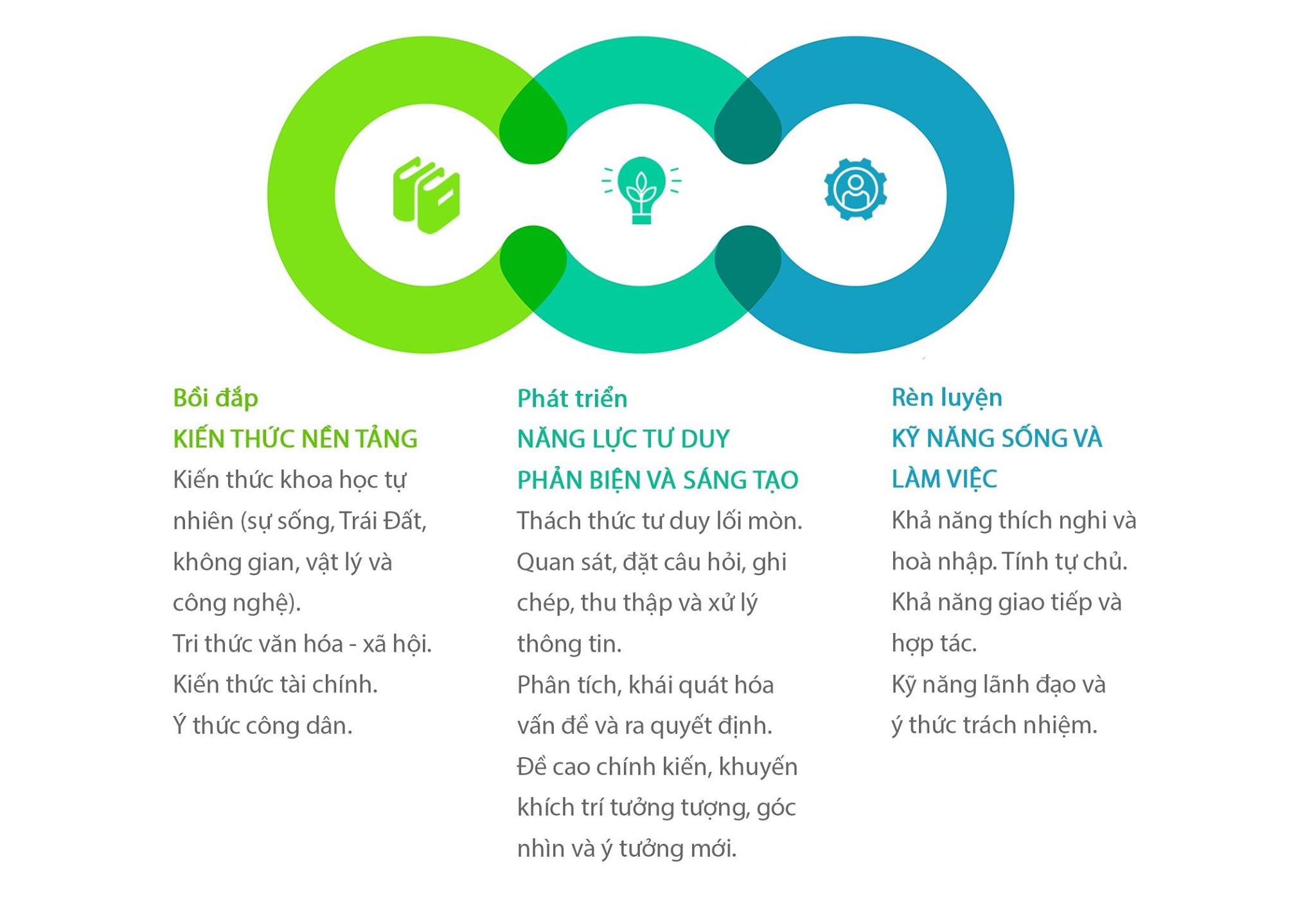WHAT IS EXPERIENTIAL LEARNING?
Experiential learning, to put it simply, is the process of “learning through experiments”. More specifically, the process begins with practicing and experiments. Then, the learner analyzes and reflects on the experience and the results of that experience. This process helps students consolidate knowledge, develop new competencies, skills, behaviors and even new ways of thinking. It is considered to have many advantages compared to the traditional educational method (mainly focusing on providing knowledge/information and conveying information through lectures). Learning through practice is the process by which students learn from their own experiences through touch directly with learning materials, objects, which is different from learning through reading a book. It means through the experience of others that are summarized in writing.

EXPERIMENT – EXPERIENCE – REFLECT – CONCEPTUALISE (KNOWLEDGE)
Source: Todd Fitch and Janet Watson, Experiential Learning, University of California Berkeley, 2014.
The advantage of experiential learning in developing thinking has been proven by many scientists. Herman Ebbinghaus who is a German physicist, a pioneer in experimental research and memory has shown that if your rate of learning (from a lecture) is 100% on the first day, then on the second day, that number will drop significantly from 50-80% and so on until only 2-3% on the last day of the month. Similarly, according to William Glasser, we only learn 10% from reading, and 20% from listening (from other people). Meanwhile, he believes that 80% of the knowledge we acquire is through experience in reality.
Not only plays an important role in memory development, but experiential learning is also proven to help people develop comprehensively: developing observation skills, cognitive and thinking skills, application skills behavior, perceptual skills, and emotional expression (Toddthe Fitch and Janet Watson 2014). Learning through experience is also evaluated as helping to develop 21st-century competencies: 4C (Critical thinking - Communication - Collaboration - Creativity).
These are nothing new. Experimentation is the foundation of Western science. Many philosophers and scientists have made statements about the role of experience. For example, Aristotle (384-322 BC) said: "For things we have to learn before we can do, we learn by doing". Albert Einstein (1879-1955) said that “The only source of knowledge is experience”. However, in the advanced education in the world, experiential activities are meticulously designed when integrated into the general curriculum. It seems that this is still a relatively remote problem for the Vietnamese education system.
Aware of the importance of experiential learning, the Ministry of Education and Training is planning to integrate experiential activities into curricular programs (See the new General Education Program of the Ministry of Education and Training on December 28, 2018). Some private schools have even begun to apply this model in practice. At the same time, experiential learning services (provided by non-school facilities such as research institutes, museums, educational farms, and event organizations) are also increasingly abundant. However, according to our observations and assessments, current experiential learning models still have many limitations, such as:
- Many experiential learning programs are still very formal and have very low frequency (1-2 sessions/semester). An experiential session is held simultaneously for 100-200 students, or even more, of different learning levels (i.e. with different cognitive levels) where students come primarily to hear (even many children can't even hear it) an introduction to a topic is hard to call it. Similarly, a fairly common model these days is to send students to educational farms where they mainly get to do things like touch a tree, dig up potatoes (which had been purposefully buried before) in a pile of sand/earth on a concrete floor, and ride a horse for a few minutes. This method is more like a simple picnic than an experiential learning session.
- Some programs do better (applying according to the STEM/STEAM) but only focus on the natural sciences, but there are no good experiential learning programs in social sciences. Instead, these programs are often based on “fun” experiments that spark student curiosity and then explain the phenomenon by providing knowledge rather than instructing students in a scientific process. Therefore, these programs are not really designed to build and develop thinking abilities (for example, the ability to question, observe, compare, reason and analyze and soft skills like teamwork, leadership, presentation, etc).
In addition, most of the experiential learning programs are built sporadically, lacking continuity, totality, and system.
The experiential learning program was founded upon the methods and educational models of developed countries such as the United States, Australia, France and Japan. It was also based on the OECD Learning Compass 2030 and the Framework of 21st Century skills under P21 program (Partnership for 21st Century Skills); and was intergrated with the curriculum of the Ministry of Education and Training at the equivalent education level.
The main goal that we aims is the comprehensive development of children. We pays special attention to developing children's ability to think critically and creatively through experiential learning.

FOSTERING KNOWLEDGE
- Natural sciences (life sciences, physics and chemistry, earth and space)
- Socio-cultural knowledge (history, geography, cultural heritage)
- Entrepreneurship and finance
- Citizen consciousness
- Knowledge of health and environment
- Awareness of global issues
DEVELOP CRITICAL THINKING AND CREATIVE THINKING
- Observe, ask questions, collect and process information
- Reflect on the experience
- Analyze and generalize the problem
- Proposing new opinions, ideas, and perspectives
- Make decisions and take action
PRACTICE LIFE AND WORK SKILLS
- Ability to adapt and integrate
- Ability to communicate and cooperate
- Creativity and self-control
- Leadership skill and responsibility
- Understanding cultural differences
